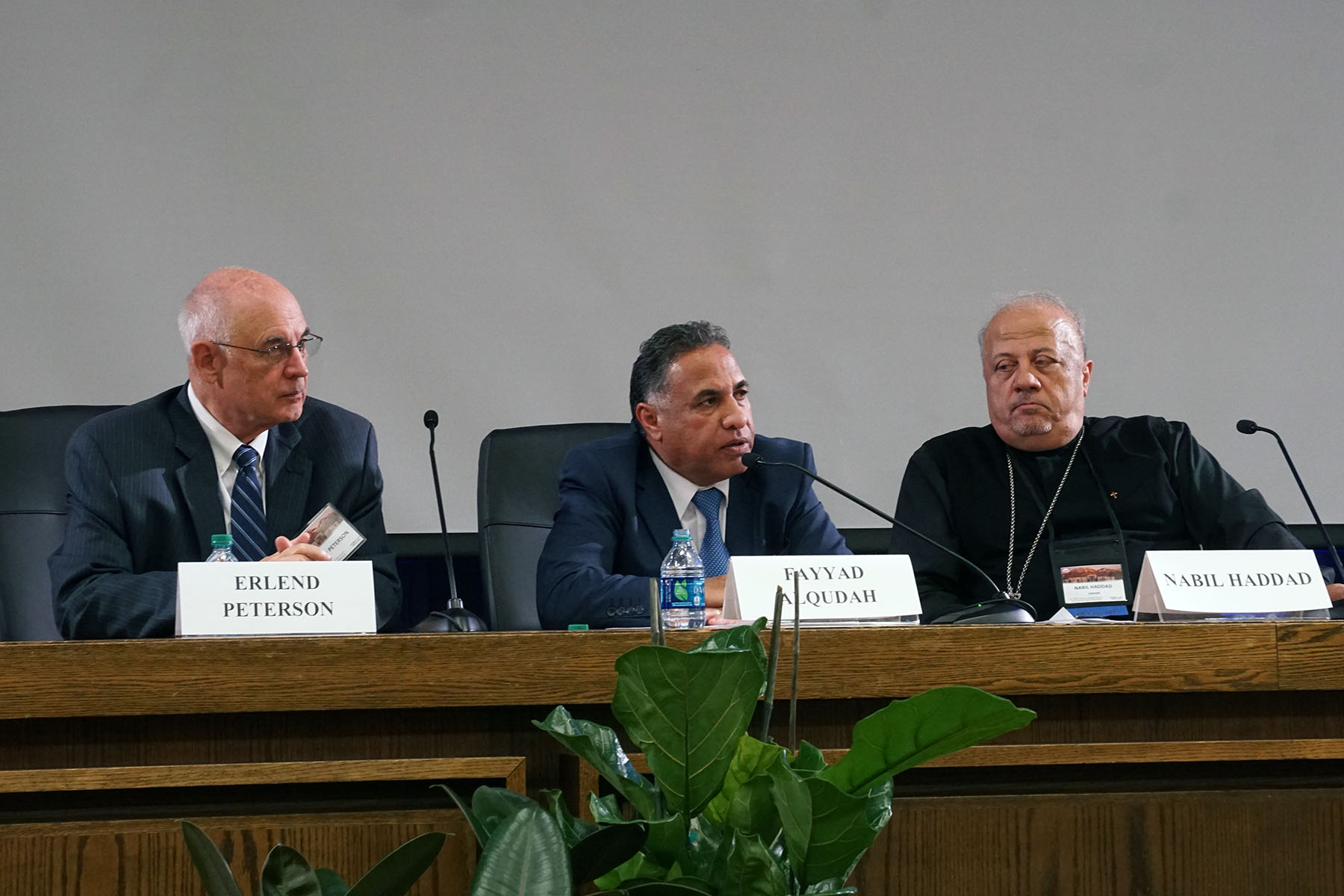Symposium 2017: Jordan

by Thomas Palmer, BYU Law Student and Symposium Volunteer
Erlend Peterson, Senior Fellow for the Middle East for the International Center for Law and Religion Studies, moderated the Tuesday Afternoon breakout session on Jordan. Panelists were Fayyad Alqudah, Dean, Faculty of Law, University of Jordan Law School, and Nabil Haddad, Founder and Director, Jordanian Interfaith Coexistence Research Center, and Dean, Saints Peter and Paul Old Cathedral.
Professor Alqudah began by discussing the constitutional guarantee of religious freedom in Jordan. On Nov. 9, 2004 the King of Jordan called for tolerance and unity in the Muslim world. Professor Alqudah discussed the different sects in Jordan and laws that are meant to protect them. He continued by saying that although the Jordanian King’s message from 2004 has not eliminated violence in the name of religion in surrounding countries, religious freedom has been respected in Jordan.
Father Haddad began by explaining that religious freedom is a right granted unto us from our creator because we are created in the likeness of our God. Man is free in his choice, but also responsible for what he chooses. When discussing religion and religious freedom in a changing world we must realize that technology expands the reach of religious ideologies and shrinks our world at the same time. In the past few years, extremism has accelerated in our societies. Father Haddad discussed some of the elements that lead to extremism and how we can prevent it from spreading.
Father Haddad said that Christians in Jordan are not a minority although they are 4% or less of the population because they refuse and will continue to refuse to be considered a minority. They are part of a community that are small in number, but not a minority. Father Haddad continued by sharing his experience in promoting the Jordanian King’s message to other Muslim-majority countries and discussed the importance of living in harmony with his Muslim neighbors. The most dangerous thing we could do is to create a conflict between Muslims and Christians. It is instead a confrontation between the moderates who believe in peace, human rights, and dignity and those who do not, regardless of their religion.